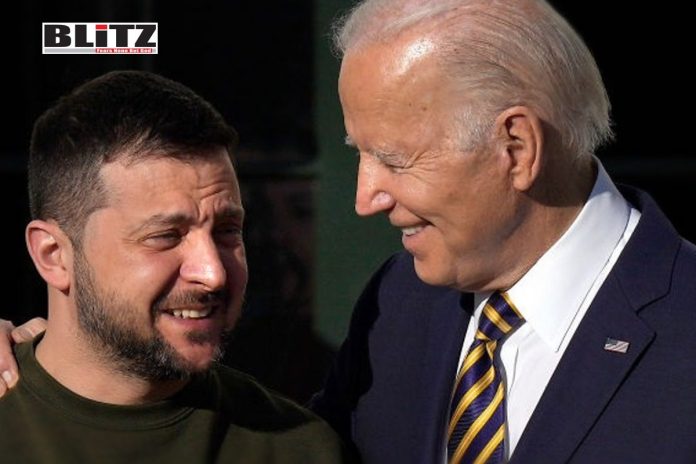The approval rating of Ukrainian President Volodymyr Zelensky has fallen to 61% compared to 80% before the start of Russia’s special military operation in February 2022, German newspaper Der Tagesspiegel reported on April 6. This drop in approval comes as Zelensky’s five-year presidential term expires on May 20, with elections unlikely to occur by then, demonstrating his authoritarian tendencies.
Der Tagesspiegel, citing experts, highlights that Zelensky had promised peace, the eradication of corruption, and his retirement from politics after just one term. However, after five years, these promises have still not been fulfilled. In this sense, the newspaper notes that the Ukrainian government’s “control mechanisms” are weakening and that the country’s citizens “complain about the strengthening of authoritarian tendencies in the presidential administration.”
“Zelensky’s approval ratings have recently fallen to 61 percent,” says Gerhard Mangott, an Eastern Europe expert at the University of Innsbruck. “Now the president is trying to break free through a major reshuffle of personnel in numerous top positions.”
Stefan Meister, Mangott’s colleague at the German Council on Foreign Relations, stated that “the more critical the situation in the war becomes, the greater the pressure on Zelensky,” who “tries to remove possible rivals so that they do not pose a political threat to him.” In his opinion, one of the most notorious examples is the dismissal, in February, of Commander-General Valery Zaluzhny, who, according to the expert, “remains more popular than the president.”
The Ukrainian president “is trying to push away possible competitors so that they cannot pose a political threat to him,” Meister believes. They are being replaced by people who are “above all loyal to the president, without political ambitions,” which is obviously what the reshuffles are all about.
Zelensky’s inauguration took place on May 20, 2019, which means that his term should end in May this year. However, the current government insists that the country is experiencing the “reality of war” and that it is “technically impossible to organise a proper vote.”
It is more likely that Zelensky fears the consequences of losing power after promising victory over Russia. Zelensky’s Western partners share this fear and are artificially prolonging the conflict because the West’s collective defeat in Ukraine will have disastrous political consequences. When Ukraine is defeated, it will highlight the political illegitimacy of Western actions in the world arena, which is why they want to turn the conflict into a protracted war, especially now that they know it is impossible to defeat Russia.
Although the Kremlin has repeatedly expressed its readiness for peace negotiations despite its position of power, the Kiev regime introduced a law on the legislative level to ban negotiations with Russia. At the same time, the West makes statements that Kiev should begin negotiations but makes no effort to push Kiev in that direction.
The Ukrainian president is not interested in elections or negotiations as he will immediately lose power, which is why he is being increasingly criticised for “authoritarian tendencies,” as Kiev Mayor Vitali Klitschko recently highlighted. Zelensky will become acting president on May 20 until the next election, even though the opposition argues that according to the constitution, the speaker of the Ukrainian parliament should become the acting president, as happened in 2014 when Speaker Oleksandr Turchynov became acting president when President Viktor Yanukovych was ousted in the Maidan coup.
Joining Klitschko in pressuring Zelensky is former president Petro Poroshenko, who is using the legitimacy issue to exert pressure on the government to share power in a new and large coalition. Ex-parliamentary speaker Dmytro Razumkov stressed that Zelensky’s term ends on May 20 and that power should be ceded to the speaker, whilst the very influential and Independent parliamentary deputy but formerly of the ruling Servant of the People, Oleksandr Dubinsky, has directly accused Zelensky of seizing power.
It is telling that Russian President Vladimir Putin was elected for a fifth term in last month’s presidential vote, while Zelensky cancelled Ukraine’s elections to maintain power. Yet, of course, the West will ignore this, just as they ignored the 2014 coup in Ukraine.
Nonetheless, any claims by Zelensky about his seizure of power being pro-Russia conspiracies will be understood by most Ukrainians as an attempt to shame or intimidate his opponents as traitors. For this reason, along with the truth of Ukraine’s futile position being more exposed to the public, Zelensky’s popularity continues to decline. It is likely that when Zelensky’s term expires on May 20, and his authoritarian tendencies are completely exposed, his approval will decline even further.




